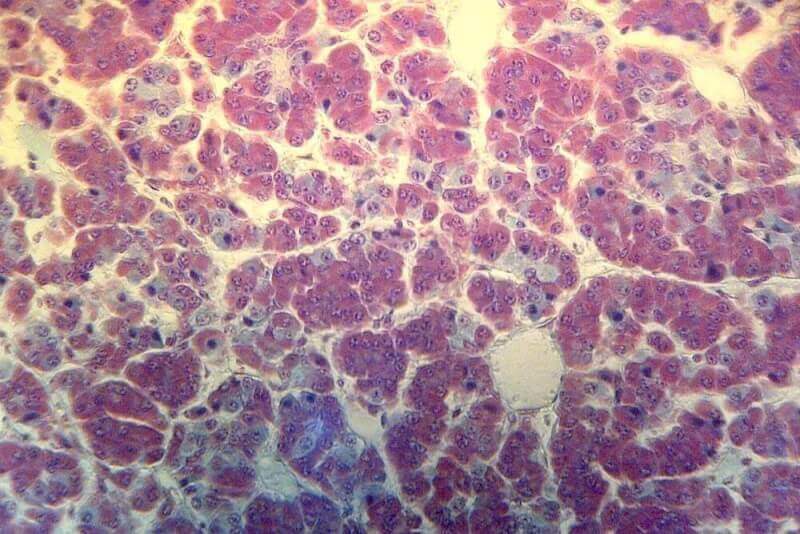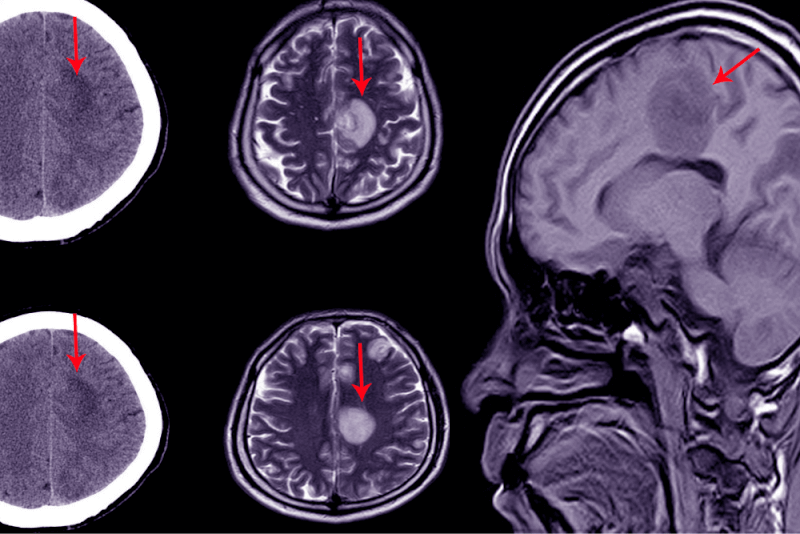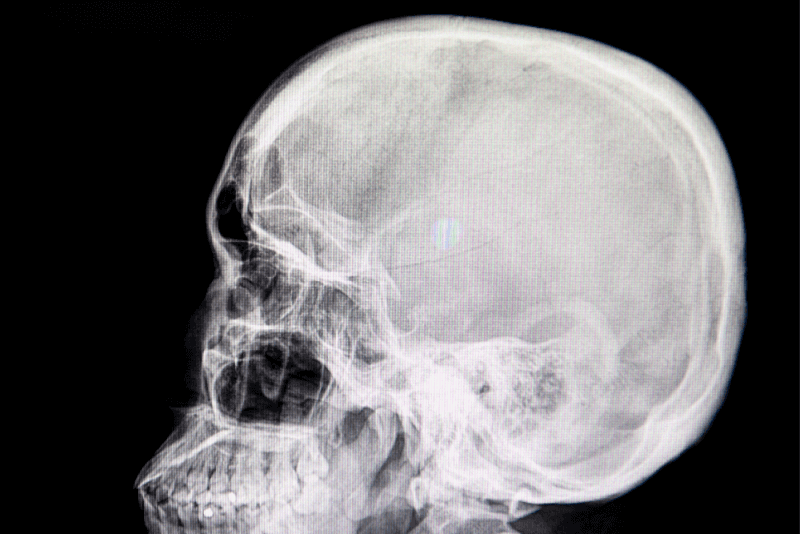What is a pituitary tumor?
The pituitary gland in the skull is about the size of a hazelnut and is located in an area adjacent to the nasal cavity. It is protected by a bone structure called the Sella Turcica (Turkish Saddle). The most important feature of the pituitary gland is that it forms the center of the hormone system. For this reason, it is also effective in the functioning of internal organs. Divided into 3 sections, each section of the pituitary gland is responsible for controlling different hormones.
The pituitary gland in the brain is responsible for many functions. Pituitary gland tumors are located in this gland. These tumors usually tend to grow slowly, but in some cases they grow rapidly. Pituitary gland tumors can affect many functions in the body, as they can affect the hormones that the pituitary gland is responsible for secreting. The hormone balance of the body is also disturbed because the pituitary gland hormones are affected. Hormones affected by this disorder include thyroid hormones, sex hormones and metabolism.
Tumors in the pituitary gland are caused by the uncontrolled growth of cells. These usually benign tumors are also called pituitary adenomas. Although adenomas are benign, they can have a negative impact on health due to their size and are usually found in the first part of the pituitary gland. Pituitary adenomas are rarely malignant. Pituitary tumors, which are most common in men and women between the ages of 25 and 45, usually do not require lifelong treatment.
Types of pituitary tumors
Pituitary tumors vary as they occur in different areas of the pituitary gland.
Adenoma
Adenomas, the most common pituitary tumor, usually grow slowly. For this reason, radiotherapy and surgical methods are used in their treatment.
Pituitary carcinoma
Pituitary carcinoma, one of the malignant types of pituitary tumors, shows a rapid growth course. This is why they need to be treated quickly. However, they are difficult to treat and cause more serious consequences than other types of pituitary tumors.
Pituitary apoplexy
Pituitary apoplexy, caused by a sudden hemorrhage in the pituitary gland, is characterized by weight changes, visual disturbances and headaches.
Pituitary cyst
Pituitary cysts, which are usually small and asymptomatic, are filled with fluid. They can be easily treated with radiotherapy and surgical methods.
Pituitary granuloma
It is a type of pituitary tumor that causes an inflammatory reaction of the pituitary gland. They cause weight changes, headaches and visual disturbances.
Pituitary tumor diagnosis methods
In order for a pituitary tumor to be diagnosed, patients' complaints are first listened to. Afterwards, blood tests are performed to check the hormone levels of the patients. In case of any problems with hormone levels, MRI and computed tomography imaging systems are used.
If the size of the tumor is less than 1 centimeter in the tests, it is called a microadenoma. Adenomas larger than 1 centimeter are called macro adenomas. Micro adenomas usually do not cause any problems. However, macroadenomas cause some health problems because they affect the surrounding tissues and put pressure on these tissues. These symptoms are also one of the criteria used in the diagnostic phase.
In addition to these markers that allow the pituitary tumor to be diagnosed, tumors can also show functional activities. These activities include the release of hormones. For this reason, some hormones start to be secreted excessively. The most common of these hormones is growth hormone.
Pituitary tumor symptoms
The symptoms of a pituitary tumor are affected by the size of the tumor as well as the site of attachment. This is because the size of the tumor is the most important factor affecting how much the surrounding tissues will be affected and which tissues will be under pressure. This suppression by the tumor may cause a decrease in hormone production or an abnormal increase in hormone release.
In addition, if the tumor is capable of producing hormones, hormone excess is seen among the symptoms. In case the pituitary tumor compresses the surrounding tissues due to its size, the symptoms that can be seen in patients include the following.
If the pituitary tumor is capable of producing hormones, then the symptoms include an excess of different hormones. In addition, common symptoms of pituitary tumors include the following:
- Fatigue
- Fatigue
- Menstrual irregularity
- Loss of vision
- Narrowing of the visual field
- Nausea
- Vomiting
- Headache
- Sexual dysfunctions
- Weight gain
- Blurred vision
- Double vision
- Inability to move the eyes in the same direction at the same time
- Numbness or pain in the face
- Dizziness
- Compression sensation at the points where the carotid artery enters the skull
- Loss of consciousness
- If the pituitary tumor grows too large, it causes blockage of the water circulation pathways in the brain. This results in water accumulation in the brain.
- Loss of body hair
- Chills
- In some cases, macroadenomas press on the back of the pituitary gland. In this case, patients have diabetes without sugar and therefore urinate frequently. The body thirsts a lot to prevent dehydration.
In addition to these symptoms, the symptoms seen in patients in the presence of tumors that cause an increase in hormones include the following.
In case of excess secretion of the hormone prolactin
Prolactin-secreting pituitary tumors usually occur in women and older men. Excess secretion of this hormone basically causes estrogen deficiency in women and testosterone deficiency in men. For this reason, it causes different symptoms in male and female patients.
Excessive secretion of the hormone prolactin due to a pituitary tumor primarily causes menstrual irregularities or complete absence of menstruation. Milk may also come from the breast.
In men, sexual dysfunctions, erection problems and loss of sex drive are observed. These symptoms are accompanied by a decrease in sperm count and enlarged breast tissue in men.
In addition, common symptoms in both men and women include infertility, a general lack of interest in sexuality and bone weakening due to osteoporosis.
In case of excess secretion of growth hormone
Excessive growth hormone secretion during development due to a pituitary tumor can lead to excessive growth in children. This condition, popularly known as giant disease, is called gigantism in medical language. This is because children experience too much growth before the bone plates close.
Excess secretion of the hormone in the adult period is observed in the growth of the end parts of the body such as the nose, chin, hands and feet. The reason for these symptoms at the ends of the body is that the growth plates have closed in adults. In addition to these symptoms, patients also experience the following symptoms.
- High blood sugar
- Sweating
- Heart and joint problems
- Excessive sweating
- Snoring while sleeping at night
- Voice thickening
- High blood sugar
- Misalignment of teeth
- Headache
- Carpal tunnel syndrome
- Increased body hair
In case of excess secretion of the hormone gonadotropin
Pituitary tumors that cause gonadotropin secretion are rare. However, since it is secreted in the anterior part of the pituitary gland, it is effective in regulating the function of the testes in men and ovaries in women. Because of this effect this is seen on hormones. Symptoms caused by an excess of this hormone are sexual reluctance due to low testosterone levels in men and irregular menstrual periods in women.
In case of excess secretion of the hormone ACHT
In cases where a pituitary tumor causes excess secretion of ACHT, patients experience the following symptoms.
- Skin problems (acne development, stretch marks, oily skin)
- Psychological problems
- High blood pressure and blood sugar levels
- Muscle weakness
- Adiposity in abnormal body areas
In case of excess secretion of the hormone TSH
In case of excessive secretion of TSH hormone due to pituitary tumor, the symptoms that will be seen in patients include the following.
- Irritability and restlessness
- Intestinal problems due to the rapid functioning of the intestines
- Palpitations
- Weight loss
- Rapid and irregular heartbeat
- High blood pressure
- Excessive sweating
- Sleep problems
- The formation of a lump due to the enlargement of the thyroid in the front of the neck
In case of excess secretion of FSH and LH hormones
In case of excessive secretion of LH and FSH hormones, the complaints that can be seen in patients are usually on the effects of sexual hormones.
- Infertility
- Menstrual irregularities
- Sexual dysfunctions
Causes of pituitary tumor
The cause of pituitary tumors has not been proven by studies. However, these studies have identified risk factors that may increase the risk of pituitary tumor. The risk factors identified in these studies are as follows.
- People with a family history of pituitary tumor
- People with MEN type 1 disease
- Patients with Carney complex
- Patients with McCune-Albright syndrome
- Some radiation treatments
- Bone marrow transplantation
- Brain traumas
Pituitary tumor treatment methods
Treatment of pituitary tumors varies depending on the location and size of the tumor. For this reason, different treatment methods can be used separately or several treatment methods can be used within the treatment program.
Pituitary surgery
Surgical removal of the tumor is one of the most commonly used methods in pituitary tumors. Endoscopic methods are usually applied. However, in some cases, the tumor is located in areas that are difficult to remove or it is not possible to remove the tumor completely. In these cases, other treatment methods should also be used.
If the release of hormones is not sufficient after pituitary tumor surgery, patients need to use hormone-supplementing drugs.
Radiotherapy
Radiotherapy treatment, which involves sending X-rays to the tumor, reduces the size of the tumor. Radiotherapy, which provides treatment for a significant proportion of pituitary tumors, does not completely eliminate the tumor in some cases and has some side effects.
In addition, Gamma Knife Radiosurgery is a method frequently used in pituitary tumor treatment. The success rate is high as it is not an open surgery and results are usually obtained in a single session.
Medicines
The drugs used in pituitary tumors are drug groups that reduce the release of hormones.
Which method or methods will be applied is chosen according to the patient's condition. If the pituitary tumor is left untreated, it can cause serious problems.







